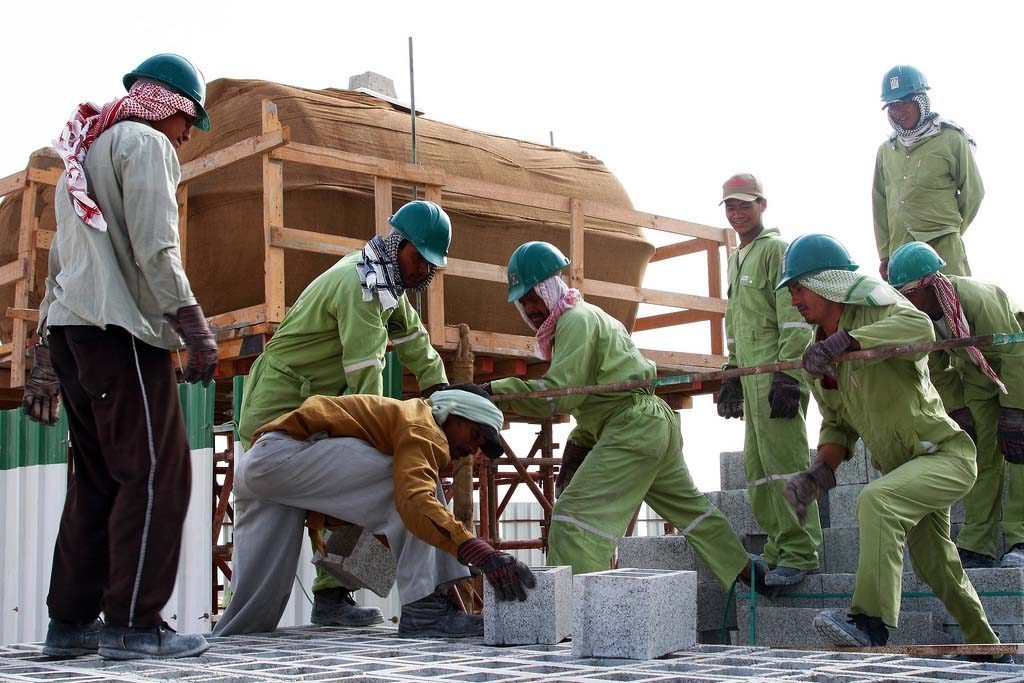
Workers’ wages in Qatar should be paid directly into bank accounts, so that the government can track and punish employers who don’t pay on time or at all, the Cabinet has announced.
The board’s nod brings Qatar one step closer to amending a key provision of its Labor Law, which currently does not require employers to make electronic wage payments for all workers.
However, the Emir’s signature would still be required for the amendment to pass.
In a statement issued by Deputy Prime Minister and Minister of State for Cabinet Affairs Ahmed bin Abdullah bin Zaid Al-Mahmoud, the Cabinet said the new system should be created and handled by the nation’s banking regulator, Qatar Central Bank (QCB).
Also involved would be the Ministry of Interior and the Ministry of Labor and Social Affairs – which is the government department responsible for overseeing the recruitment of all non-domestic workers to Qatar. Financial institutions and companies should also play a role, the statement added.
The news comes as the labor minister, Abdullah Saleh Mubarak Al Khulaifi, opened a conference today on workers’ rights.
At the conference, a key official from the Ministry of Interior’s Search and Follow-up department described Qatar’s labor laws as “fluid”:
Head of MOI “Search and follow up department” says Qatar’s laws are fluid according to needs of country. “We are proud of expatriate labour”
— James Lynch (@jpmlynch) May 1, 2014
How it works
The new system is expected to be introduced in three phases. The first phase will affect the largest companies, with more than 500 employees. The requirement will then be rolled out to firms with 100 to 500 workers, while SMEs with fewer than 100 employees will be included in the final stage.
A timeline for the new system has yet to be announced.
If the Labor Law is amended, workers would have to receive their salaries by bank transfer in the first week of the month, and it would be compulsory for all companies – private, government or semi-government – to comply.
Businesses that do not adhere to the new system can expect to be fined by the labor ministry, though no details are available about the level of the penalty proposed. Previously, the government said it would “blacklist” violating firms, which could mean not granting them new work visas for a period of time.
Other questions remain, including how the potential new legislation could affect the current banking system in Qatar.
Most banks here require a minimum monthly salary of QR4,000-QR5,000 or a deposit of around QR10,000 before a person can open a current account – considerably more than the average wage of most domestic and construction workers in Qatar.
No information has been given as to whether banks would be required to reduce the minimum salary requirement to comply with the new recommendations. QCB and the labor ministry were not immediately available for comment.
Labor law changes
The recommendations would revise articles 1, 66 and 145 of the Labor Law of 2004 and in particular are contrary to article 66, which states that employees can be paid in cash and in person, and salaries can be transferred to bank accounts only by “mutual consent.”
The Ministry of Labor and Social Welfare and the Ministry of Interior are also collaborating to develop a database to track who is to be included in the wage protection system and who is not, and companies have been asked by the Labor Ministry to provide salary details of all their employees.
The announcement endorses recommendations made by a committee formed to study a wage protection system (WPS) and comes amid suggestions in the community that there will be imminent changes to Qatar’s sponsorship (kafala) system.
Qatar has come under pressure from numerous international organizations to reform its sponsorship system and to improve the rights of its expat workforce.
Earlier this week, the Peninsula reported that amendments to the controversial kafala system are expected to be announced this month. These are predicted to include changes to existing laws governing No Objection Certificates and the transfer of workers between employers, as well as the exit permit system.
Other Gulf countries are also reforming their own sponsorship laws. Kuwait is in the process of replacing its kafala system and is setting up a Public Authority for Manpower to set up new procedures.
Thoughts?







